In honor of National First-Generation College Celebration Day on Nov. 8, a few of UW Bothell’s first-gen students answer questions from Director of Communications Maria Lamarca Anderson.
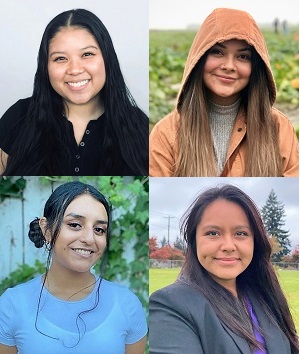
The students are Jessica Edith Ambriz-Madrigal, a queer Latinx senior in Educational Studies; Hieu Doan, a Black and Vietnamese senior in Interactive Media Design; Jacky Guzman, a Mexican-American transfer student from Everett Community College majoring in both American & Ethnic Studies and in Society, Ethics & Human Behavior, with a minor in Diversity Studies; and Maritza Lauriano Ortega, a Mexican/Latina senior in Environmental Studies with a minor in Human Rights. Their responses to the first two questions were similar and are presented as a shared answer. Their individual, unique experiences are also noted.
Q. What is it like being a first-generation college student?
A. Being a first-generation college student means I am automatically at a disadvantage. I must learn how to navigate an institution on my own, a system that wasn’t set up for people like me. While other students have parents who can guide them through the entire process, from researching colleges and completing application forms to getting financial aid and walking into a university-level class, I have to make my own way through this. Sure, there are advisers and teachers who can help, but it’s not the same. My parents have a language barrier, and they don’t understand higher ed. They don’t have college friends. They don’t have a network of connections who can help me when I enter the workforce with my degree.
As much as my parents support my education, obviously — they moved to this country for a better life for their family and have worked hard to help me with school — they can’t understand the late nights spent studying and the worry of passing an exam. I can’t talk with them about school-related stress. It’s hard. But it’s not any harder than the sacrifices they’ve made for me to be here.
Doan: Being first-gen is like being blindfolded and navigating through systems that were made to break me. And there’s all this pressure to get a degree so I can help my family. This experience is turning me into a diamond. The pressure to succeed is going to make me shine.
Lauriano Ortega: Besides being a first-gen student, I am also a DACA student. It’s scary that a bunch of white men in government are in charge of my fate. All my hard work could be thrown out the window if they decided I shouldn’t be here anymore. I didn’t ask to be brought here in the first place. People like me grew up here, and we thought we were born here. We’ve worked hard, yet that may not be enough.
Q. Where have you found the support you need to succeed?
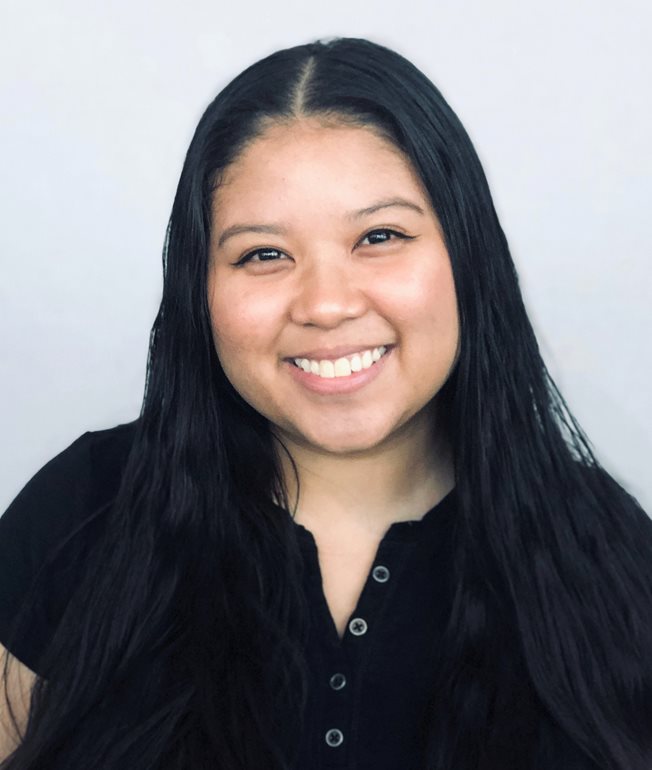
A. The Student Diversity Center at UW Bothell! The staff there encourage and challenge me and provide resources I wasn’t aware of. Also, faculty and staff from across campus, some first-gen, others who are just kind and supportive, come to the center to see how they can help, and they end up serving as advisers and mentors. That unsolicited support is just incredible!
I’ve also made a community of friends who are first-gen, and we help each other to navigate things we don’t know anything about. We help each other complete the financial aid forms. We talk to each other about our fears and insecurities. Students who aren’t first-gen can’t relate.
Doan: I also found support in the few teachers who truly took their time to invest in me and the friends who stood by me through everything. They were the ones who reminded me that even though I’m constantly having to navigate through systems that aren’t designed for first-gen students, I’m breaking through those barriers.
Q. What are you most proud of in relation to your experience as a first-gen college student?
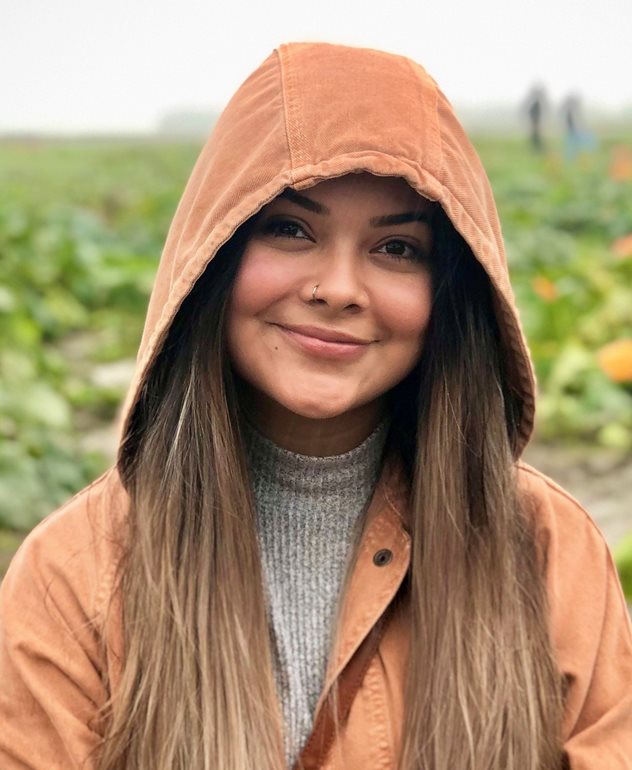
Ambriz-Madrigal: That I have been able to not only survive college but to thrive in this environment and to have amazing grades. In high school, I was traumatized by being misdiagnosed with learning disabilities. I was always a quiet kid. Growing up I would wake at 3 a.m. because my school was in a different district than where I lived. I would get there by 5 o’clock, have breakfast at a daycare and be taken to school. For a young child, those circumstances couldn’t help but affect how I was in school.
Doan: I had so many doubters who repeatedly asked if I really wanted to go to college. They didn’t think I had what it takes to succeed here, given my background. I’m proud to say I’m graduating. Now I go to my high school and ask teachers if there are people like me that I can mentor. If I can do it, they can, too.
Guzman: I’m proud that I have made my parents proud. Their experience is in manual labor, and they would demonstrate how physically straining their jobs were. They encouraged me and my sisters to “make” something of our ourselves, and here I am. My education is a product of their hard work, and it will bring us to that better life they dreamed of when they brought us to America.
Lauriano Ortega: Not only making it through, but graduating one quarter early! I’m also super proud of the fact that I’m now a role model for my brothers.
Q. What has kept you motivated in your academic journey?
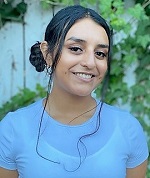
Ambriz-Madrigal: My 6-year-old daughter. I want her to have a different educational experience than I had growing up. I went to predominantly white schools where I didn’t feel welcome. I internalized a lot of hate in myself. I want my daughter to go to a school she loves and feels a part of. Also, my mother. She works in a kitchen, and it’s awful to see her come home with oil burns and cut fingers. I want to make a better life for all of us, so she doesn’t have to always work in fast food.
Doan: My mother, who has worked 12-hour shifts for as long as I can remember. I want to relieve her of her financial responsibilities. The people who doubted me also motivate me. I was determined to show them I could do it, and I have.
Guzman: My parents. While they don’t understand what I’m going through, they hug me and tell me I’m doing well and to keep on going. My professors have also kept me going. Their words of affirmation on my assignments are an important boost.
Lauriano Ortega: My youngest brother (I have two), who is 15. Because our mom worked two jobs, I was responsible for taking care of him. I want to provide more stability and a better future for him. He looks at me as a role model, and I would do anything for him. A year ago, the three of us moved out. It’s hard, navigating college and having a full-time job. But I keep going for and because of him.
Q. What are your post-UW Bothell goals?
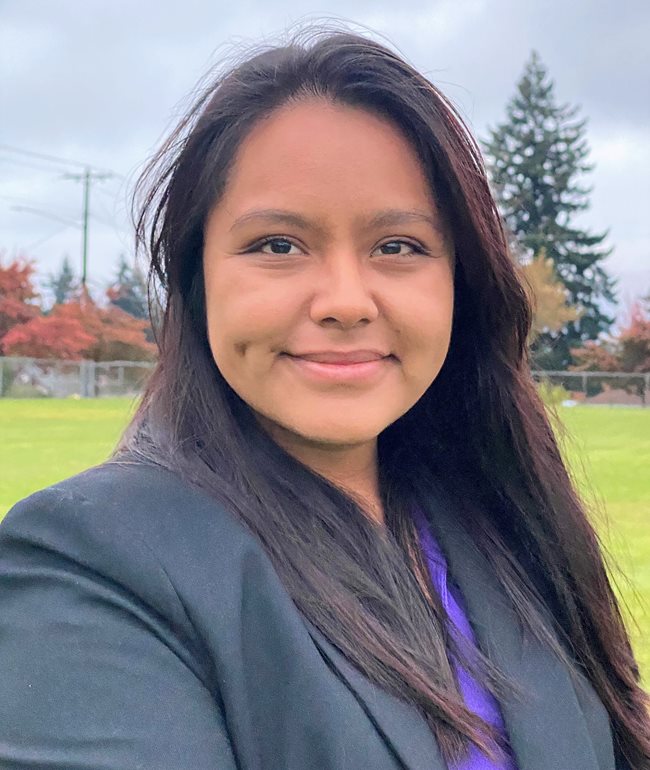
Ambriz-Madrigal: I want to be a success coach after college, then go into education policy. I want to shift things so people from marginalized communities aren’t overlooked when policy is being made, that we take into account what they need, not what we think they need. Eventually, I want to start a nonprofit that supports students of color to go into STEM. My first choice was to become a mechanical engineer. But I faced too many barriers to be successful. My nonprofit will help remove those barriers. And maybe someday, I can return to school in STEM.
Doan: A dream of mine since I started at UW Bothell has been to work at Microsoft in the diversity, equity and inclusion space. I don’t want just any 9-to-5 job. It’s important to me that others see first-gen students in high-profile companies.
Guzman: I want to work in education, specifically building curriculum. I value working at UW Bothell and am excited that I’m making the connections I didn’t have.
Lauriano Ortega: Doing something with environmental policy. Communities of color are most affected by environmental issues, so I want to affect change in that arena. Ultimately, I want to teach environmental science in high school. I had some amazing teachers who found the best in me, and I want to be one of them for first-gen students who follow.
Read a message from UW President Ana Mari Cauce on “Celebrating the courage and impact of first-generation students.”



